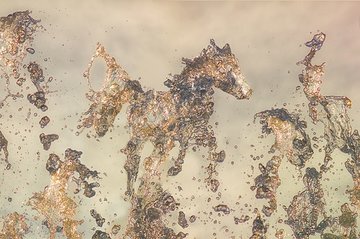 Trusting what you see, hear, feel, and sense is one of the biggest challenges in animal communication. But how do you build that faith in what you are perceiving when there are so many variables, unknowns, contrasting messages from other communicators, and ways you could be wrong? The answer, according to John Friedlander and Gloria Hemsher, in their book Basic Psychic Development, is to validate your perceptions. Not through an external source, like by asking the people connected with the animal. But internally. When you validate an emotion, an energy, a perception, or interpretation, you are allowing your body to say, "This is what exists now according to what I am feeling or sensing." It doesn't necessarily mean these perceptions are true, but it acknowledges they are currently yours — and that they could change in the next moment. And when you acknowledge this fluid state of reality, you can let go of feeling like what you produce must be unyieldingly set in stone, and therefore, correct for all time. You can freely move forward, knowing that your perceptions and interpretations are real and valid. Yes, they may shift in the next minute when you learn something new and adjust your previous interpretation to a new understanding. But the awareness of this fluidity is what sets you free.
0 Comments
 When it comes to acknowledging our successes in animal communication, our minds tend to have a short-term memory. Add to that, we also often focus on what we didn't get right, rather than what we did. It's a recipe for frustration and deflated confidence and self-esteem. But there's hope! You can outsmart your own brain simply by keeping a journal of your animal communication sessions. It can be as simple as noting fuzzy impressions, feelings, or colors, to recording full conversations. Now here's the important part, recommended by well-known animal communicator, Carol Gurney, in her book The Language of Animals: 7 Steps to Communicating with Animals: after asking for validation or feedback from the animal's people, go back to your journal and highlight everything you got right. Even if it's just a little bit right. Your mind won't be able to go back and "change history" when you have this kind of proof of progress. But Carol says, don't stop there. "Think back to how it felt, to what you were doing, when you got those things right or wrong. Were you in your head? In your heart?" Don't let your mind sweep these clues under the rug. With a little sleuthing, you may discover that you are making progress; that you are more successful at this than you ever thought! Do you already write a diary or blog about your learning experiences? Speak! Good Human. can help you help other students learn from your journey. See our Student Journals page for more details. |
About these tips...Wouldn't it be great to be able to browse some of the best tips, advice, and methods in animal communication? Sort of like a "greatest hits" album that pulls out the nuggets just for you. That's what this journal is all about — complete with numbered posts to chart the hits along the way. Read More Categories
All
Copyright ©2020 Speak! Good Human. & Josh Coen. All Rights Reserved. Share or republish freely with attribution and link back.
|


